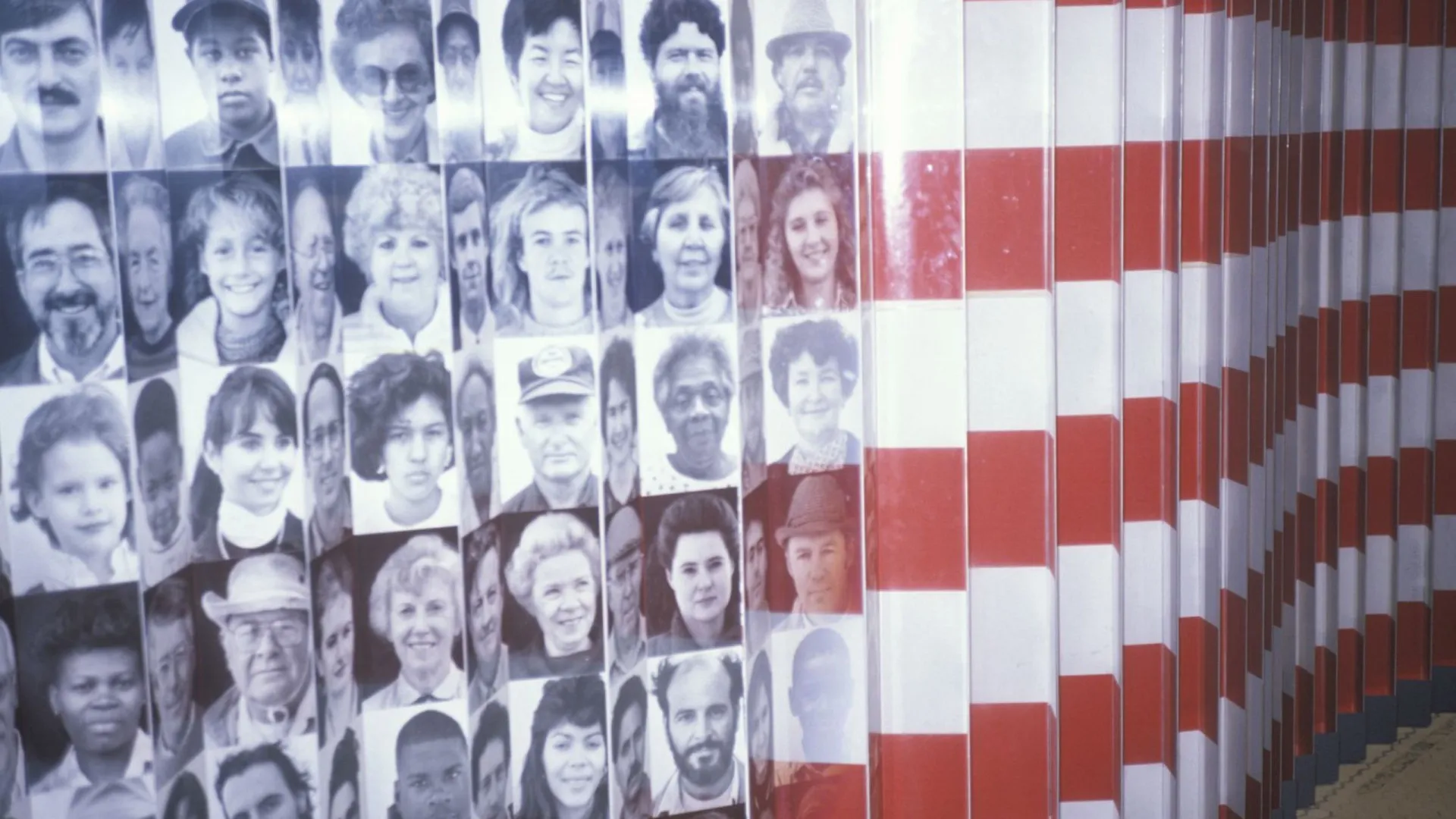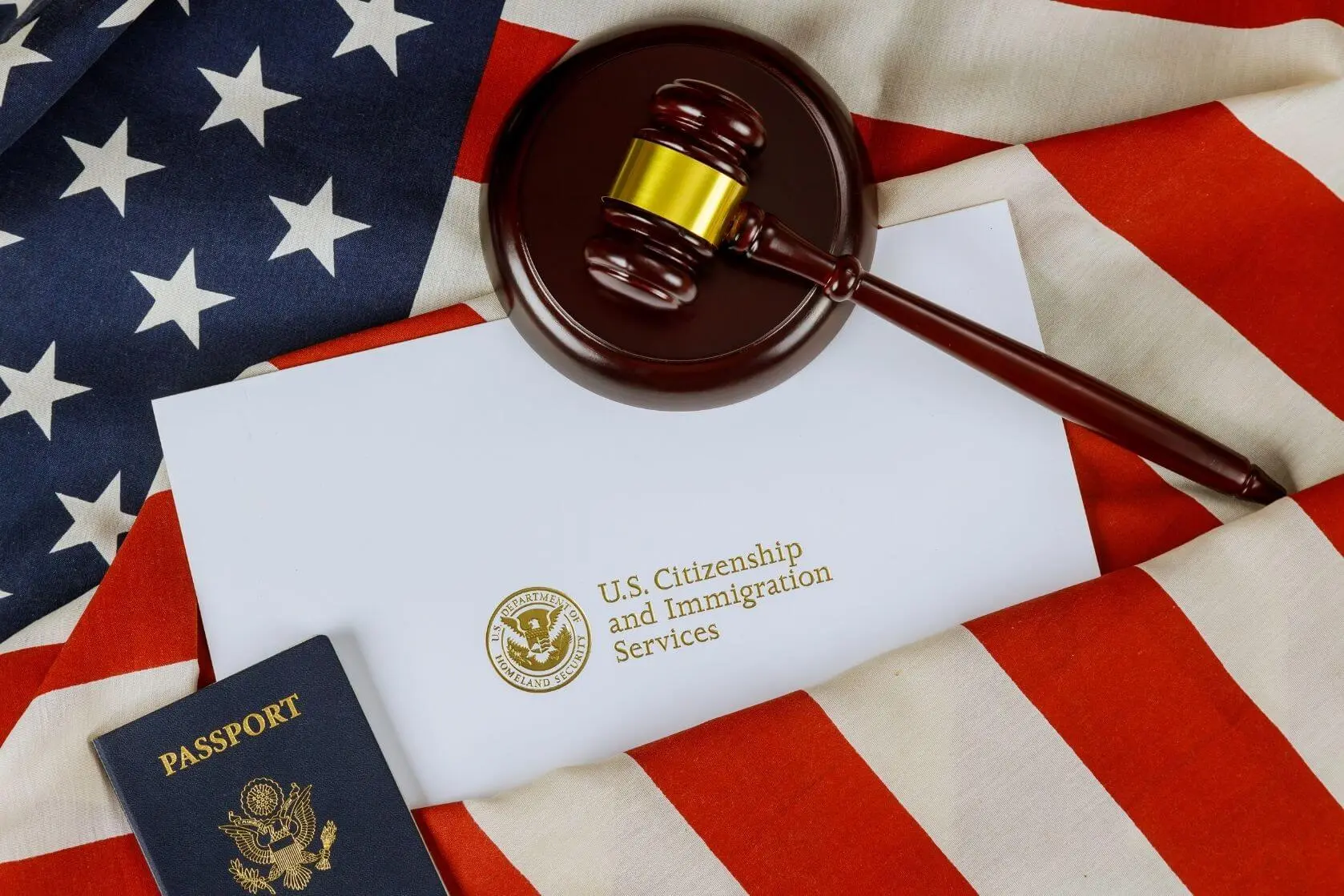Updated on 10.12.2024
In March 2021, the USCIS ended the Public Charge Rule, which was introduced by the first Trump administration. Below we report on the current situation and the consequences for visa applicants.
Share article:

The U.S. Citizenship and Immigration Services (USCIS) has permanently ended enforcement of Trump's Public Charge Rule for immigrants on public assistance, effective immediately. This is the result of successful lawsuits against the final Public Charge Rule and the Biden Administration's decision to end the U.S. government's opposition to the lawsuits.
With the repeal of the 2019 public charge rule, the USCIS has now returned to applying the far less stringent public charge rule set out in the 1999 interim rule. In addition, the self-sufficiency declaration requirement (Form I-944 "Declaration of Self-Sufficiency") has been completely eliminated.

Although the public charge approach goes back a long way, the Public Charge Rule implemented by the first Trump administration actually went far beyond the previous understanding of when a foreign person applying for a visa is or is likely to be a "burden on the public" (= public charge) under Section 212(a)(4) of the Immigration and Nationality Act (INA or the Act).
As early as 1882, the US Congress introduced the possibility for the US government to refuse to issue a US visa if the beneficiary is likely to be dependent on state support. Under former US President Trump, the meaning of the statement "is likely at any time to become a public charge" was defined more precisely. This interpretation of the Public Charge Rule or dependence on state benefits now or in the future has been understood very broadly. This would have reduced the number of people eligible for green cards and other US visas.
Financial assistance to cover living expenses and possible long-term care at the expense of the US government played a role in this.
However, the Public Charge Rule was controversial from the outset. The final rule "Inadmissibility on Public Charge Groundss" of the U.S. Department of Homeland Security (DHS) only came into force on February 24, 2020 instead of October 15, 2019 as planned, after it was blocked by several injunctions from US federal courts. In addition, there were two nationwide injunctions due to the COVID-19 pandemic, which again blocked the Public Charge Rule.
In response to the Public Charge Rule, the U.S. Citizenship and Immigration Services (USCIS) published guidance on February 5, 2020, which, among other things, defined the term "public charge" in inadmissibility determinations under INA 212(a)(4) and listed exempt applicants and types of public benefits or assistance that are considered in inadmissibility determinations and applications and petitions for extension of status and change of status.
However, the injunction issued against the U.S. Department of Homeland Security (DHS) prevented the DHS from enforcing the Public Charge Rule during the national emergency due to the coronavirus.
At the beginning of 2020, the U.S. Department of State (DOS) published the DS-5540 form "Public Charge Questionnaire", which had to be completed in particular by US immigrant visa applicants. At the request of the US consulate, applicants for nonimmigrant visas could also be asked to complete the DS-5540.
However, the court prohibited the U.S. State Department from applying its parallel Public Charge Rules to visa applicants at US embassies and US consulates abroad during the coronavirus crisis.
In the meantime, the regulation has affected individuals who have changed their immigrant or nonimmigrant status within the United States in the context of procedures for
as the U.S. Department of Homeland Security is responsible as the domestic authority.
Individuals who receive Green Cards and US visas from outside of the United States and thus go through the consular procedure have been affected by the parallel Public Charge Rules of the DOS since the introduction of the DS-5540 application form. The US consular officers decided on the day of the appointment which applicants also had to submit the form.
Under the Final Rule, USCIS had to consider factors for a foreign person such as
to determine whether a financial burden for the general public is likely at any time.
Applicants had to prove that they had not received certain government benefits above the specified threshold since obtaining the nonimmigrant status they were seeking to extend or change. A reason for exclusion within the meaning of Public Charge was if individuals had received certain government benefits in the United States over a period of more than 12 months within the last 3 years. The following programs were considered:
In accordance with the Public Charge Rule of 2019, the USCIS issued new application forms that had to be used by all applicants as of February 24, 2020. In addition to numerous forms for US immigrant visas and Green Cards (I-140, I-130, I-485), this also affected applications for US nonimmigrant visas:
In addition to the many other forms that were already required as part of an adjustment application, anyone wishing to apply for a Green Card had to complete the now abolished form I-944 "Declaration of Self-Sufficiency". The 18-page I-944 form required a wide range of information, e.g. on personal assets, financial status, creditworthiness, health insurance and state benefits used.
In his election campaign, US President-elect Donald Trump promised to restrict legal immigration channels.
Experts therefore believe that, in addition to other measures, the reintroduction of stricter rules for visa applicants, which could represent a "burden on the general public", is likely.
Date:
Wir und unsere Partner nutzen Cookies, um personenbezogene Daten wie z.B. Browsing-Daten zu speichern und abzurufen, um z.B. Inhalte und Werbung bereitzustellen und zu personalisieren sowie die Verwendung der Website zu analysieren und das Benutzererlebnis zu verbessern. Sie erfahren mehr über die Zwecke, für welche wir und unsere Partner Cookies einsetzen, wenn Sie unten auf den Button „Cookie Einstellungen“ klicken. Hier können sämtliche Einstellungen auch geändert werden. Nachträglich kann man jederzeit seine Cookie-Auswahl überdenken oder seine Einwilligung widerrufen, indem man auf den Link zu den Cookie-Einstellungen im Footer unserer Webseite klickt. Beachten Sie bitte, dass das Blockieren einiger Cookie-Typen unsere Möglichkeiten zur Bereitstellung von auf Ihre Interessen zugeschnittenen Inhalten haben kann oder einige Funktionen der Webseite nur eingeschränkt zur Verfügung stehen.
Durch klicken auf “Alle Cookies akzeptieren” stimmen Sie unserer Nutzung und der Weitergabe Ihrer Daten an unsere Partner zu.